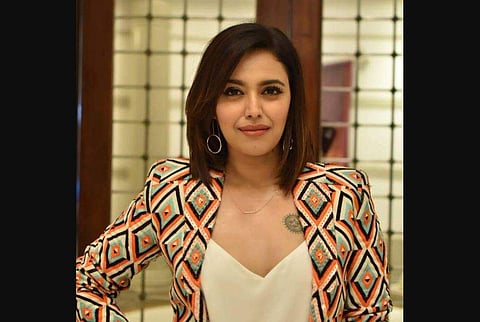

The last time we spoke to Swara Bhasker, about her thriller series Flesh, she was discussing how the gunplay on that show gave her tinnitus. No wonder she swapped it out for a microphone in Bhaag Beanie Bhaag, firing punchlines instead of tame bullets.
The new series, out on Netflix, traces a stand-up comic’s journey from hobbyist to pro. Swara is joined in the show by Indian- American actor Ravi Patel (Meet The Patels, Master of None), who plays, gamely enough, a struggling comic named Ravi.
“I call it my eat, pray, Rav phase,” he tells her at one point. We talked to the actors about collaborating on the show, the rise of Indian standup and shooting uplifting sequences in a loo. Excerpts from a chat…
How was it playing a standup comic for the first time?
Swara: It was one of the most fun shooting experiences I’ve had. I was, however, terrified of the standup portions, because that’s a completely different craft.
Ravi (interjects): But you were so good though… a real natural.
Swara: I think Ravi tends to be nice…. But I was quite terrified.
Ravi: That’s actually true. I’m a sweet guy. I’m the reason she had so much fun. But enough about me.
This is the first time you’ve done a project in India. Did you like it here?
Ravi: That’s why I did it. Neel Shah, my best friend, is also from LA. We cocreated this show together
(the directors are Abi Varghese, Debbie Rao, and Ishaan Nair). We specifical ly wanted to do something
in the stand-up scene in India. It’s the fastest-growing comedy scene in the world. It’s an important center of a global movement, and a platform for emerging voices.
Indian standup evolved out of TV but is now thriving everywhere...
Swara: What always strikes me is that there are so many young, smart people out there. How they are able to weave what’s happening in the country with their own observations and critique is quite distinct. It’s reflective of how the youth and the larger public are interpreting the world.
Ravi: Twenty years ago, it seemed there was only one audience in India. Turns out there are lots of them. There are Hindi-speaking comics as well as those who perform in English. Then you also have regional comics. Different comedians appeal to different lifestyles. What we are witnessing is an expression of how diverse the Indian population is globally.
The show turns on Beanie’s negotiations with her middle-class family.
Swara: The show is not just about comedy. It’s about the journey of self-discovery of a girl who has imbibed the values that Indian society gives to girl children — which is to be obedient, to always listen to your parents and elders, and to place other people’s emotions over your own. It’s a story that most girls, and especially girls from South Asia, can relate to. At same time, the parents (played by Girish Kulkarni
and Mona Ambegaonkar) are not villains. They are just normal people dealing with their own conditioning. It makes you hopeful that even if your parents don’t understand you today, maybe someday they will.
There’s a funny scene in a loo where Ravi gives a pep talk to Beanie. He starts off serious, then details how depressing her future looks.
Swara: That was all Ravi’s improv. In the script, there weren’t so many scatological references or references to illness and suicide. Ravi just took it and painted the darkest picture possible.
Ravi: There was a lot more that we edited out. I think my favourite line got cut, something about diarrhea or underwear.
Though the show doesn’t delve into it, trolling and online abuse is something all comics face. It’s especially worse for female comics in India.
Swara: A lot of comedians talk about being perceived as not just comics but ‘women comics’, and whatever challenges that brings. When it comes to trolling and criticism, being a woman certainly
adds a layer to it. It’s not the same as what a male comic gets to hear. There’s a difference in the nature of the trolling... perhaps not because even when the men are trolled, they are reminded of the women in their lives. So that’s just a comment on us as a people and the power structures we inhabit.
Ending note, who came up with the dumb-Indians joke? (‘There are millions of dumb Indians… They are all just in India’)
Ravi: I can’t remember, really. We had actual great comedians help us write the jokes. If it was funny, it must have been them